Sustainable city development and the efficient use of modern infrastructure require equally sustainable concepts for the administration and organization of entire metropolitan regions. Networked, time- and cost-saving projects and process management are in demand. This requires tailored software solutions as well as IT, communication and service systems.
To optimize processes in administration and municipal services, there is a need for improved planning and administrative systems for the secure operation, the maintenance and the management of infrastructure, public buildings and facilities. Competitive and socially responsible financing concepts are required as well. They include for example convenient systems for the transparent collection of fees, along with new models for cooperation and outsourcing to develop synergies in the municipal and private economy. There is also a need for improvement in emergency services communication, crisis prevention, and the management of the environment and climate change effects, among other areas.
Systems of urban infrastructure must also function without interruption. This requires systems for functional controls and reliable measures to protect against abuse, disruptions and attacks from outside. Above all, it is essential to protect the so-called critical infrastructure. This encompasses a basic supply of energy and drinking water as well as key transportation and traffic systems. In the digital personal and economic life of the modern metropolis, the need to effectively secure IT systems and communication networks is rising. This especially applies to areas where distributed systems exchange data over the Internet or wireless standards such as Wi-Fi.




